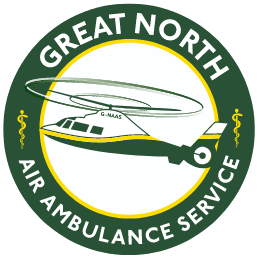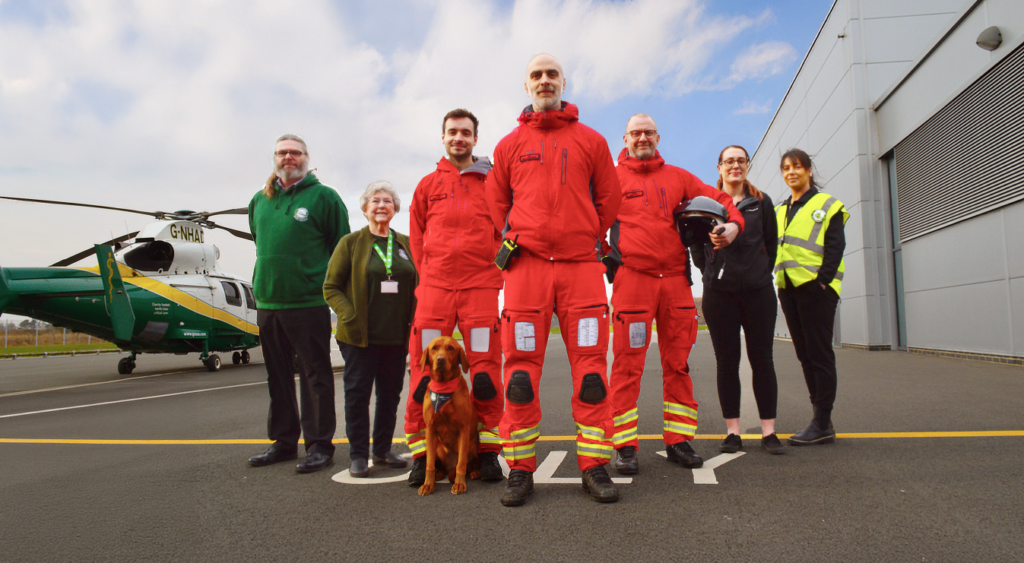A former GNAAS patient has had an emotional meeting with the blood donor who helped save her life after a horrific motorbike collision.
Ruth Cork, 38, from Shrewsbury, was riding her motorbike on the A65 near Kirkby Lonsdale, when she collided with a car in August 2022.
Her injuries included a broken femur, sacrum, jaw, cheekbone, skull, pelvis, and displaced and crushed vertebrae.
She had serious internal bleeding, a bleed under her chin, a sub arachnoid haemorrhage (a bleed on the brain), and internal bleeding.
Our critical care team flew to the scene and worked alongside the North West Ambulance Service to assess and treat Ruth.
She was given a transfusion of red blood cells and plasma by our doctor and paramedic and flown to Royal Preston Hospital in 14 minutes.
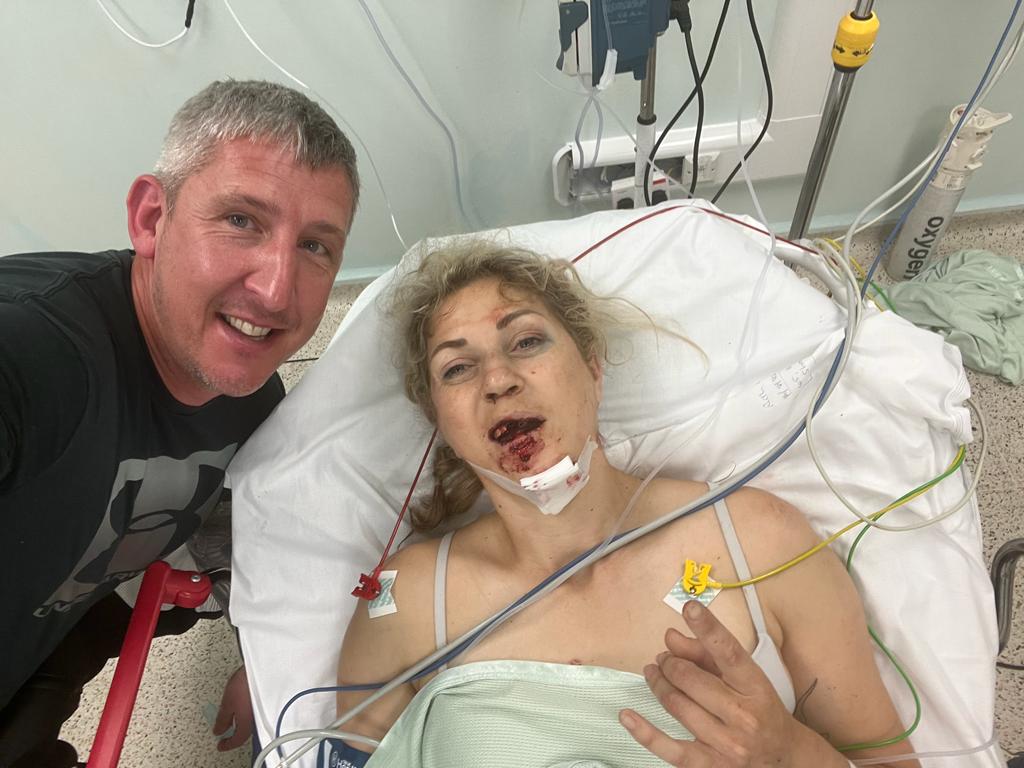

The NHS Blood and Transplant team (NHSBT) gets plasma by separating it out from normal blood donations.
The plasma contains proteins which help blood to clot, and when given alongside red blood cells in equal volumes, it can help keep a patient’s bleeding under control and minimise abnormal clotting.
The plasma that Ruth received came from Alex Quant-Smith, a 36-year-old from Spalding in Lincolnshire who works as a local authority teacher for deaf pupils.
Alex, a married dad of two adopted children, has given approximately 15 blood donations.
He donated as a young man but then had to stop due to previous restrictions affecting gay men. He restarted donating after the Government changed donation laws in 2021, enabling more gay men to donate.
Thanks to his donation, and the care given to Ruth after her motorcycle collision, she has been able to make a good recovery and has since raised over £1,000 for GNAAS by taking part in the Shrewsbury Half Marathon.
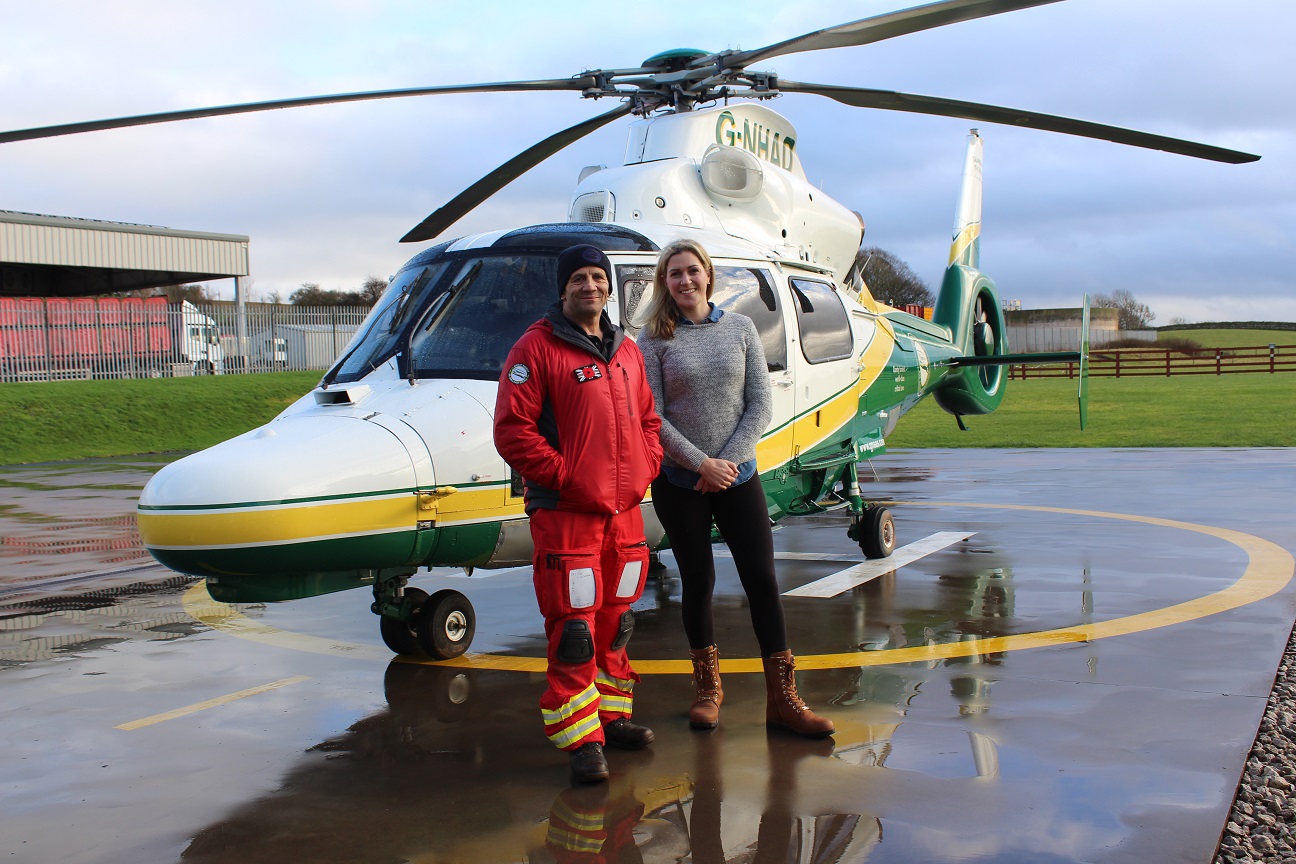

Recently the NHSBT team arranged for Ruth and Alex to meet at their West End Blood Donor Centre in central London, which was filmed and broadcast on The One Show on BBC 1 on Thursday 17 April.
Ruth said about the meeting: “I’m lost for words when it comes to the blood donors. Without them I could have bled out. I owe them a lot – I owe them my life.
“As an ordinary person, Alex has done something extraordinary – saving a life, which very few can say they’ve done.
“He played an early and critical role among the many who helped save mine. He will always have a special place in my heart, and in my blood!”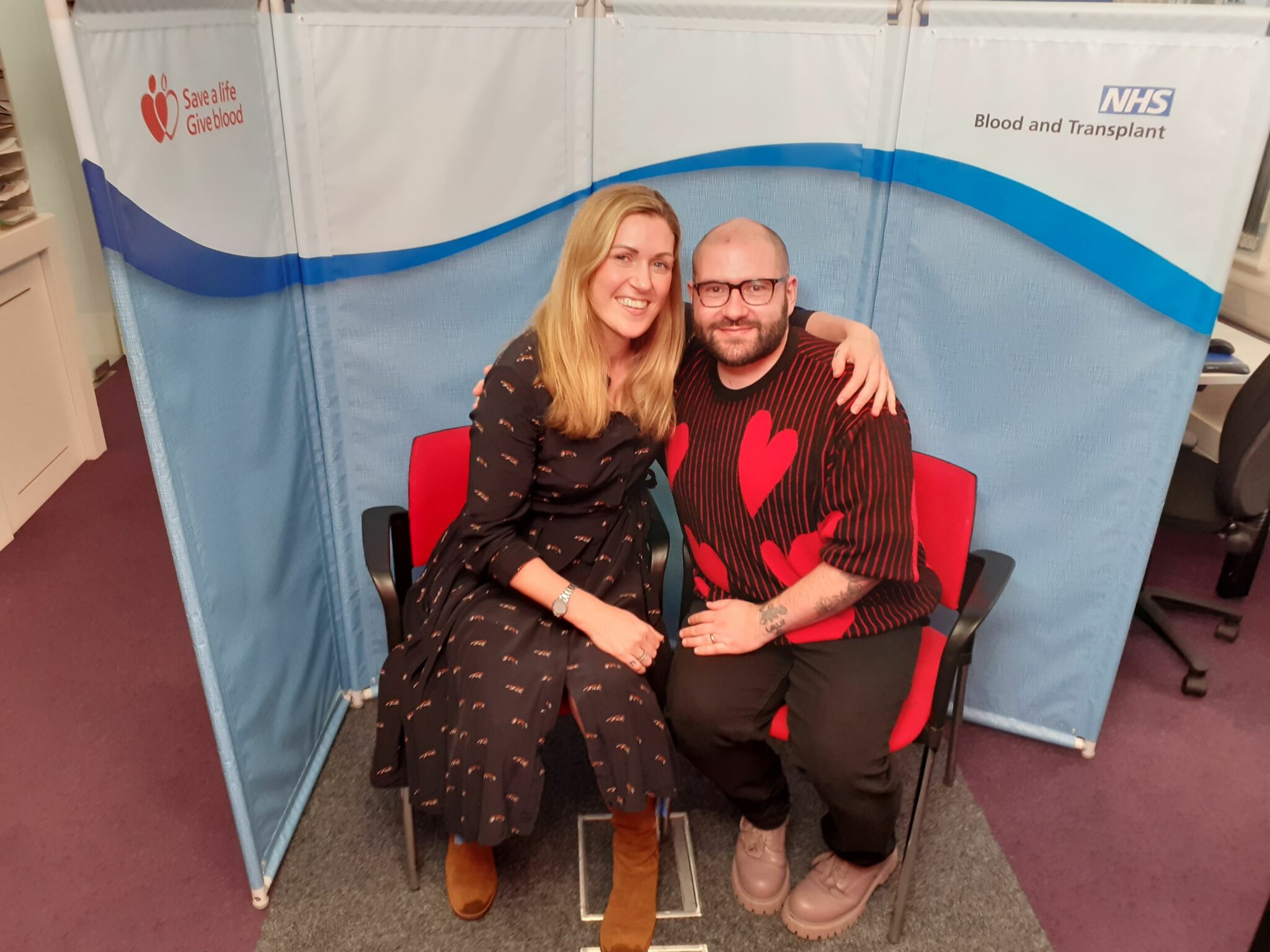

“Knowing that one simple action has saved someone’s life is something that still feels surreal.
“I’m so glad I got the opportunity to meet Ruth and it’s made it more important for me to spread the word of blood donation and talk about it more openly.”
Laura Green, a consultant haematologist for NHS Blood and Transplant, said: “Blood donations are critical for saving lives after a traumatic injury.
“Without Alex’s donation, Ruth may have died from her crash injuries. It was lovely to see them meet. Ruth was so grateful to Alex and so excited to thank him in person.
“Blood donors can only meet their recipients if we arrange it, so this was a very rare and special occasion.”
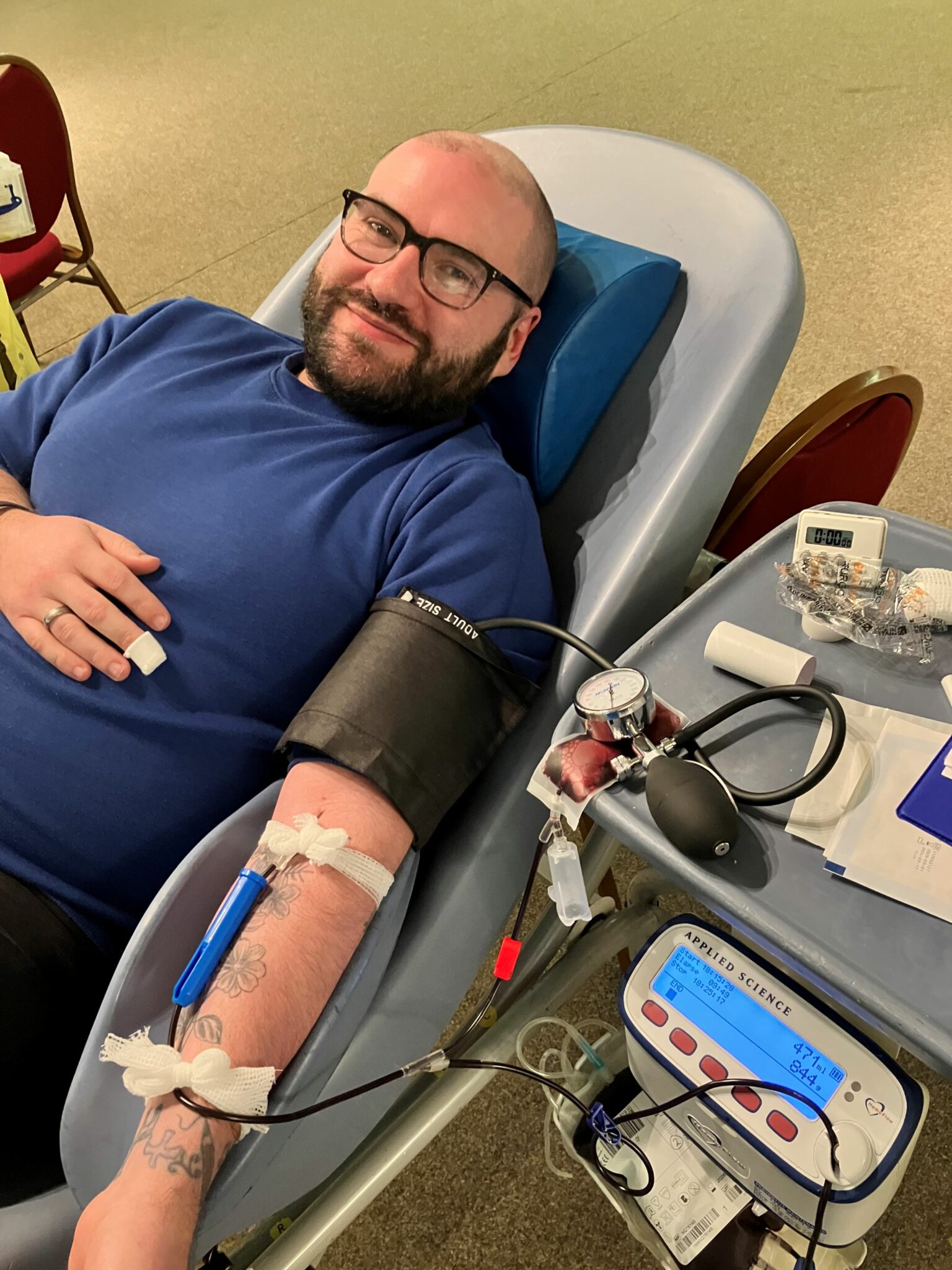

NHSBT needs around 200,000 new blood donors every year, especially those with blood types in high demand such as O negative.
Blood products are used to help treat patients with cancer, blood disorders and those suffering medical trauma or undergoing surgery. Blood can be split into parts after donation, so each donation can save or improve up to three lives.
NHSBT has 27 permanent blood donor centres in towns and cities and also 50 mobile teams who collect in community venues including our headquarters near Eaglescliffe.
To book an appointment to give blood visit the NHS Give Blood website, use the NHSGiveBlood app, or call 0300 123 23 23.

